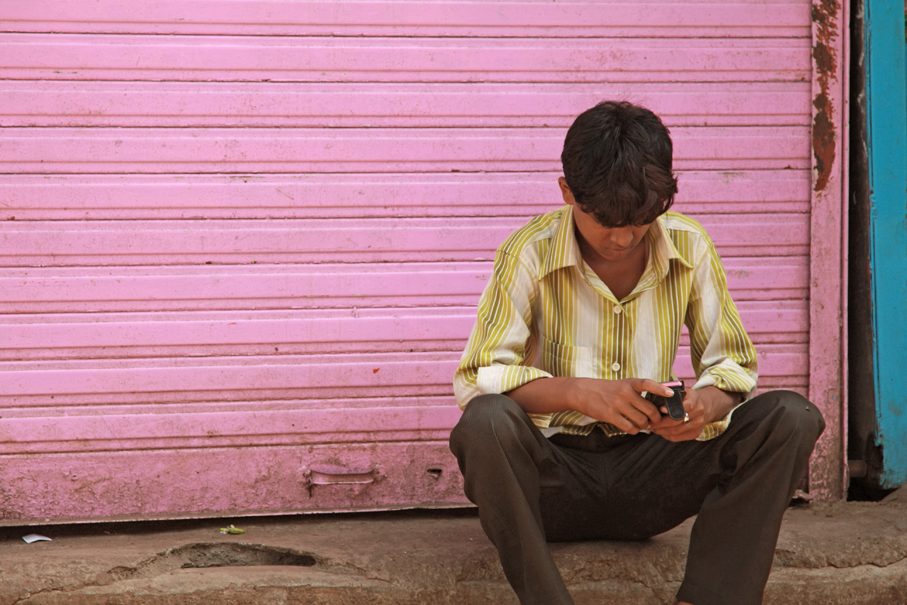Daniel Kardefelt-Winther (UNICEF Office of Research– Innocenti) recently visited UNICEF India to support their child online safety campaign and discuss ongoing research and awareness raising efforts in this area. Daniel presented some of the latest findings from the Global Kids Online Research synthesis at a panel on Child Online Safety hosted by UNICEF India at the International Conference on Cyber Law, Cybercrime and Cyber Security in New Delhi. He discussed how the work of the Global Kids Online network will continue to inform national and global debates around children’s online experiences.
Other panellists included Parry Aftab (founder of WiredSafety), Rakshit Tandon (Internet Safety independent consultant), and Anjali Prakash (Learning Links Foundation). The panel discussions, chaired by Serena Tommasino (Child Protection Specialist, UNICEF India), focused on key issues around Child Online Safety in India, such as child pornography, grooming, online sexual abuse, cyberbullying and excessive internet use.
Mrs Tommasino reflected on the recent findings of UNICEF India’s Child Online Protection report showing there are currently no reliable figures on the extent, patterns and trends of child online abuse and exploitation in India, nor is there in-depth data on the prevalence of online risks and harm. Going forward, this is an area where more data and research is urgently needed to ensure that children’s rights, safety and well-being are safeguarded in a digital age.
The same report also demonstrated important inequalities in relation to online access. There are currently about 400 million internet users in India, which is a relatively low proportion of the total population compared to other middle-income countries, but with the rapid increase in access across the country this is likely to change. Currently, major gender disparities exist in internet access, with women making up 30% of internet users in urban areas and only 10% in rural areas. UNICEF India reports that while almost all urban middle-class men of working age are online, almost all poor rural women are offline. This raises concerns both in terms of current missed opportunities for women and girls, but also their future ability to use the internet to their advantage.
UNICEF India works closely with many partners and particularly with Breakthrough, a women and girls’ rights NGO based in New Delhi, on these issues related to inequality in internet access and the importance of fostering a better inter-generational dialogue on the topic of children’s internet use.
Further resources:
Watch the informal Facebook live conversation with Daniel Kardefelt-Winther organised by Breakthrough on children’s online safety with examples from India.
See more about the work of UNICEF’s Office of Research – Innocenti
Download the UNICEF India’s Child Online Protection report
UNICEF Asli Dost #Staysafeonline campaign
You can sign up to receive the latest research news from Global Kids Online by email. Please forward this message to anyone you think may be interested.
Post author: Daniel Kardefelt-Winther








